How to prevent scale and where it originates from.
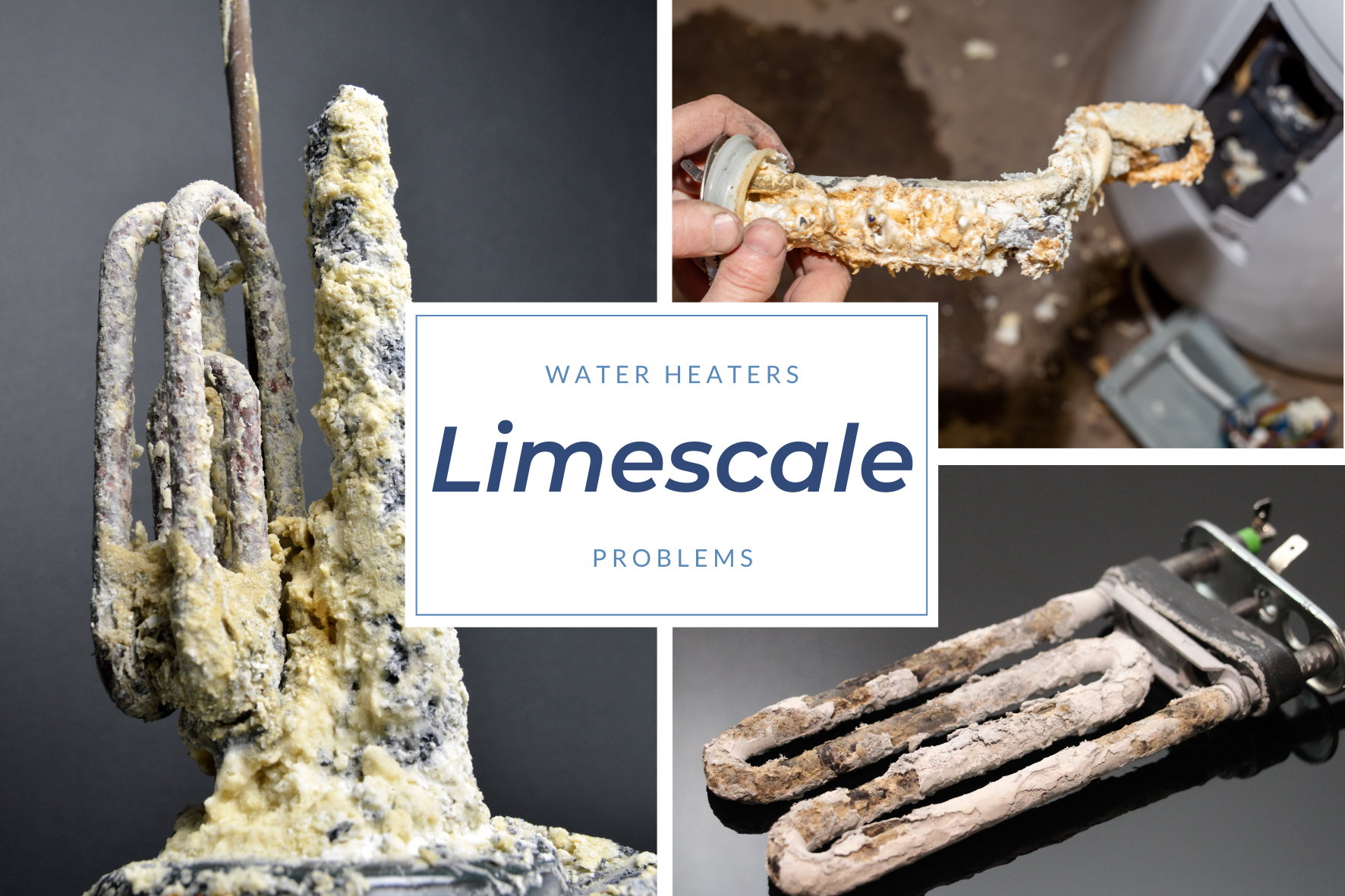
WHAT IS LIMESCALE AND HOW DOES IT LOOK LIKE?
Scale is a deposit of a white, chalk-like substance which is often referred to as limescale that develops when water accumulates or is dispensed. When water is heated or in water-using appliances that heat water, scale is a common issue. Check your faucets, tubs, sinks, shower head, shower curtain, and shower glass doors. Scale formation in most cases is inevitable.
In spite of the fact that you can’t see inside your water pipes, scale is probably forming there and would build a uniform scale inside your pipes and externally in your homes. Does not matter if you are using city water or well water, your home may be affected by scale.
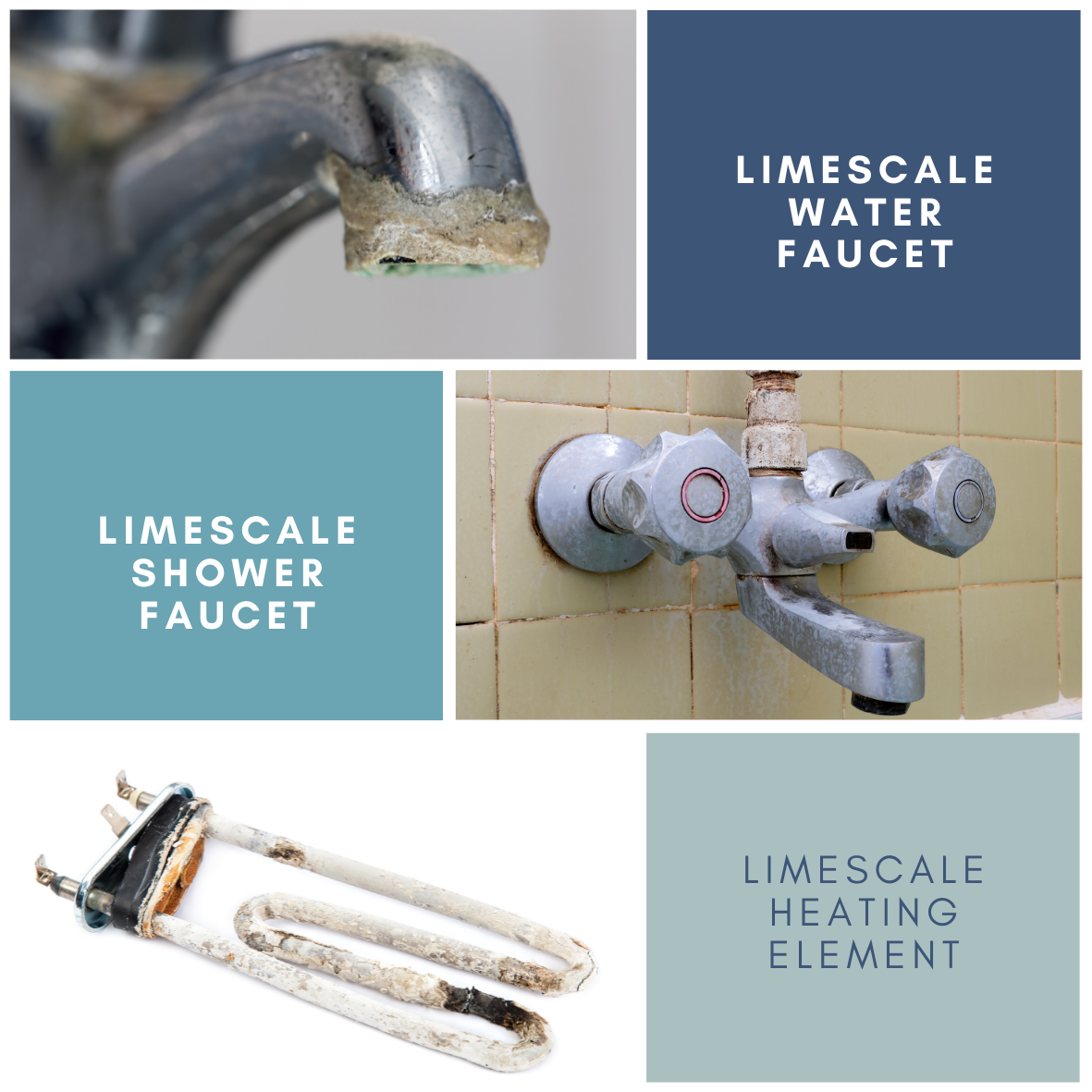
WHAT CAUSES SCALE?
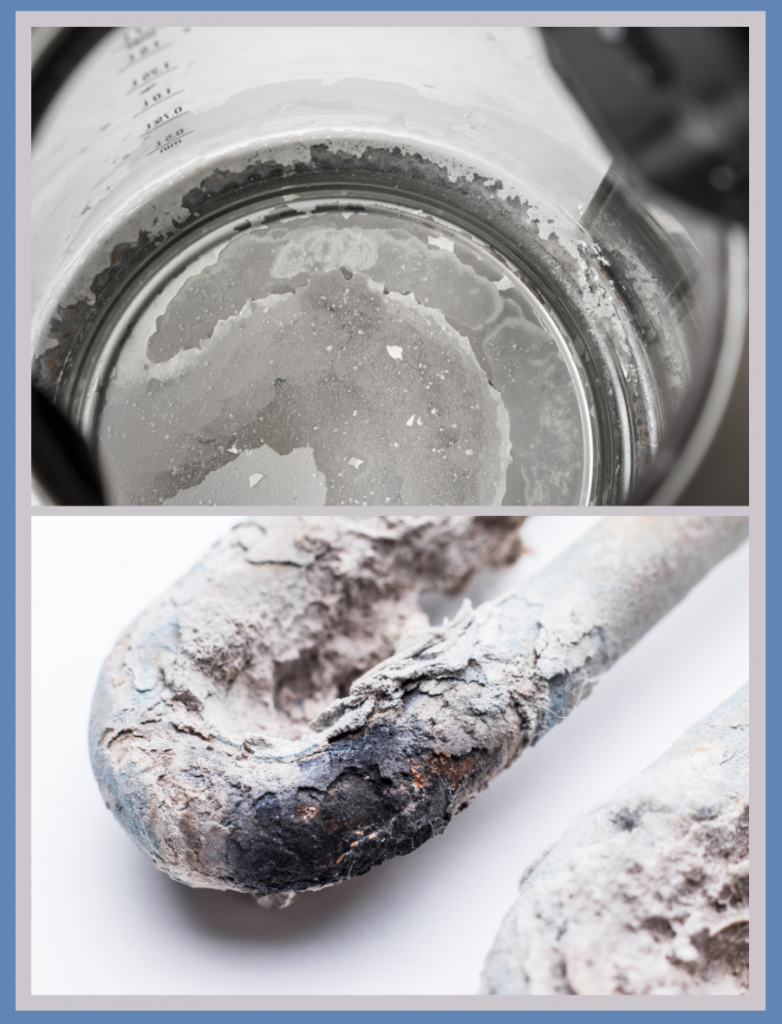
Minerals are dissolved by water as it passes through the earth. The main causes of water hardness, calcium and magnesium, are present in the majority of water supplies. The calcium and magnesium in the water can be seen as scale, which forms when water evaporates. Scale can accumulate over time, become unattractive, and cause issues in water-using locations around your home, particularly hot water. Scale can sometimes seriously harm plumbing, fixtures, and other items that use water, necessitating expensive repairs or even replacement.
WATER PROBLEMS CAUSED BY SCALE/CORROSION
SCALE BUILD-UP IN WATER PIPES & CORROSION
Your home’s water pipes may have significant limescale buildup if you have hard water. The flow rate of the water is significantly decreased as the scale accumulates in the pipes. You might need to replace your water pipes if the scale accumulation is severe enough, which is both expensive and annoying.
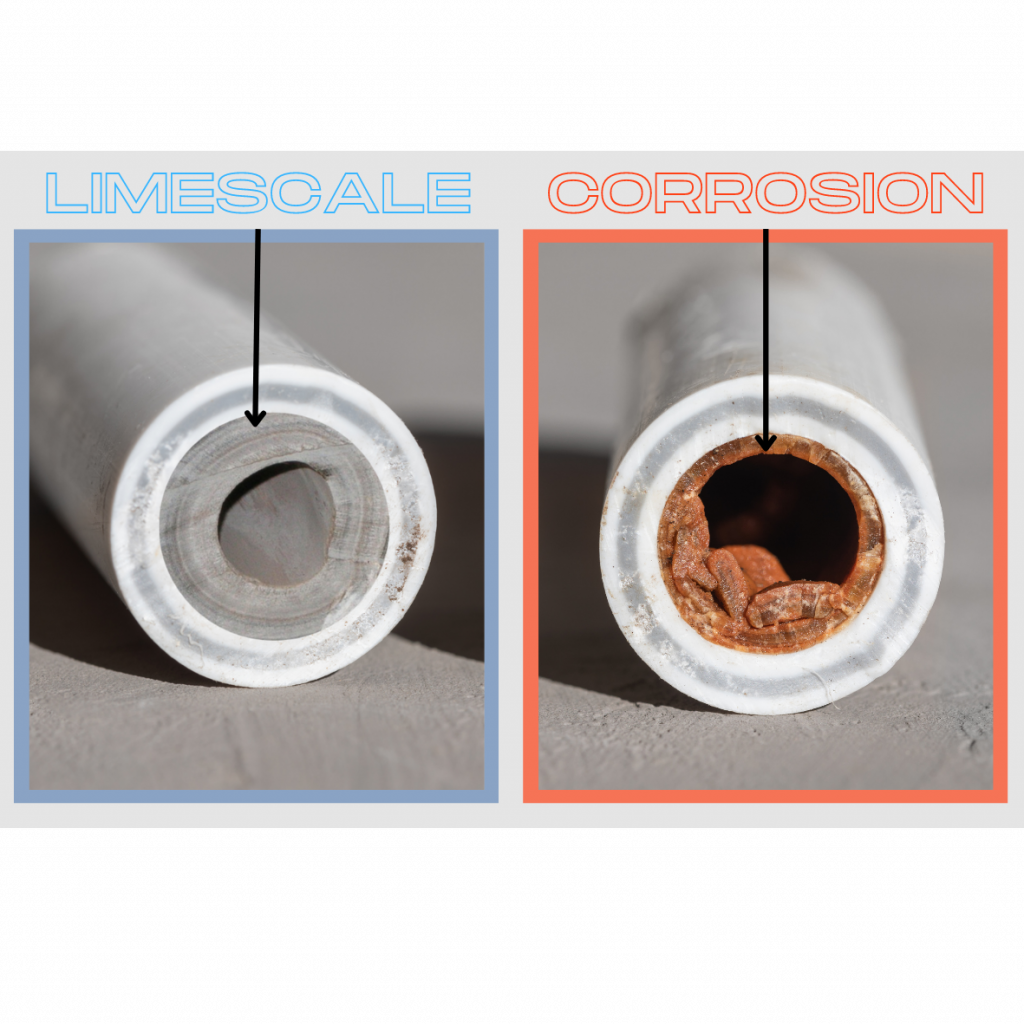
APPLIANCES DETERIORATION
Scale can cause harm to many water equipments when it accumulates over time. Scale accumulation decreases appliance performance, lifetime, and efficiency, increasing your costs for maintenance, repairs, and early replacement. The typical home appliances that are vulnerable to scale damage are listed below.
- Water Heater: Whether you have an electric or gas water heater, limescale can accumulate over time on the heating element, lengthening the time and energy needed to heat the water. In essence, the device is inefficient and wasteful because it must first heat the scale before heating the water. Scale can also develop all over the tank’s inside. Scale ultimately shortens the longevity, efficacy, and efficiency of water heaters.
- Dishwasher: Scale development from hard water affects your dishwasher as well. After your dishwasher has finished running, you could have seen a white, chalky residue within. The scale is probably being formed when the hot hard water cools. Dishes and silverware both exhibit similar issues. These blotches and streaks are obvious evidence of the reaction between the hard water and the high temperatures and detergents.
- Washing Machine: Scale building has an impact on how well laundry is done. On washing machine parts that come into touch with water, the scale will build up and decrease the machine’s performance and efficiency. In addition, the minerals in hard water prevent detergents from cleaning well, which is why garments washed in hard water frequently turn out dull. Fabrics frequently include minerals from hard water and detergent residue, which makes them deteriorate more quickly.
- Water Kettles & Coffee Machines: Limescale harms several smaller water-using gadgets, including coffee makers and tea kettles. Scale causes the appliance to work harder as it accumulates. Utilizing filtered water will enhance the flavor of your beverages while also having a significant impact on the performance and durability of these appliances.
SHOWER, SINKS & SURFACES
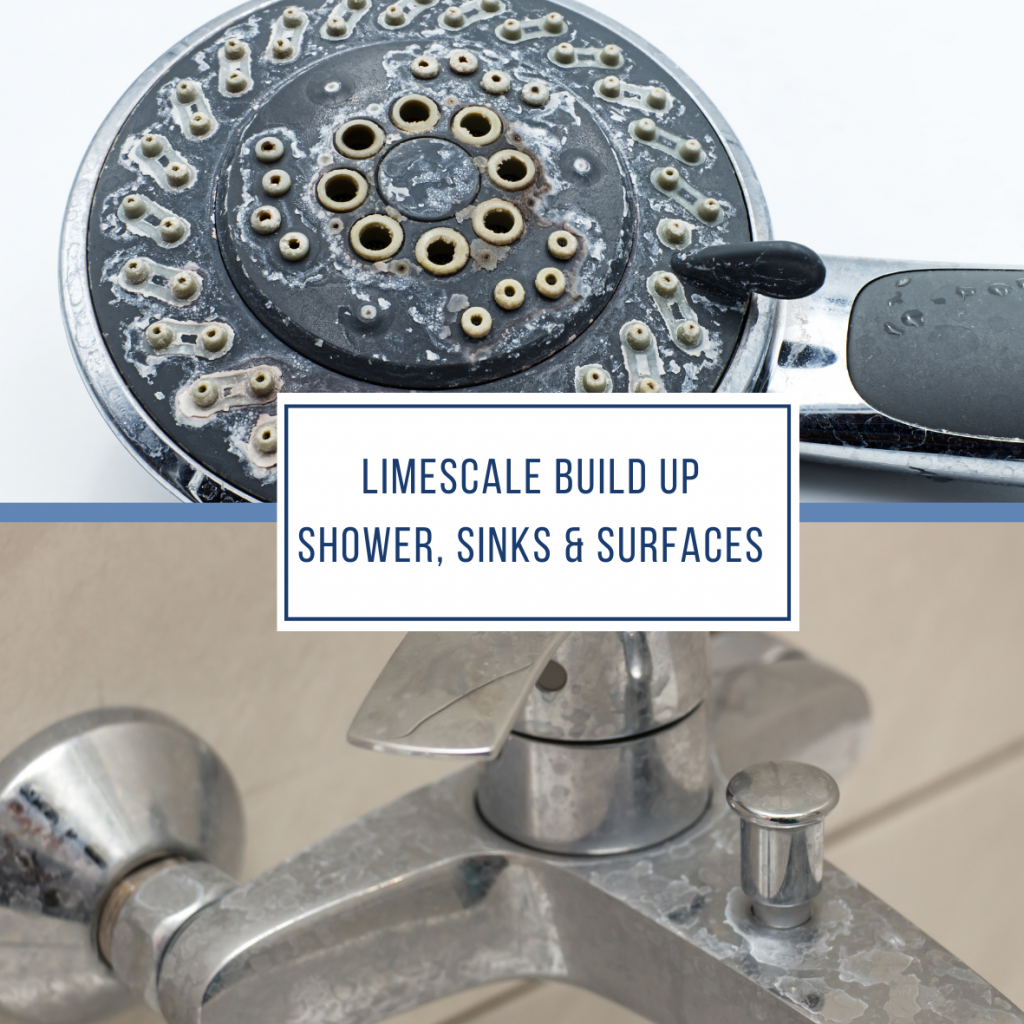
On shower doors, sinks, tubs, and other places where a lot of water is used, especially warm water, you could occasionally see white patches or a white film. These stains are brought on by hardness minerals that are left behind after water evaporates, just as the stains on glassware. When water drains, soap scum or film frequently develops around the tub, in the sink, or in the shower. Hard water and soap mix to create a soap curd that is difficult to remove off surfaces as well as your skin and hair that does not easily rinse away.
“SCALE MAY SOMETIMES SERIOUSLY HARM PLUMBING, FIXTURES, AND OTHER ITEMS THAT UTILIZE WATER, NECESSITATING EXPENSIVE REPAIRS OR EVEN REPLACEMENT”
LIMESCALE PREVENTION – TREATMENT SOLUTION FOR LIMESCALE
The good news is that there are various efficient ways to get rid of scale accumulation in your house, including salt-free and salt-based water softening techniques.
A recent development in water treatment technology, salt-free water conditioner prevents water scale without the use of salt (Sodium Chloride) or harsh chemicals. The best salt-free scale prevention with FILTERSORB® SP3
prevents all types of scale formation and prolongs water pipes, heaters, and plumbing fixtures. The environmentally friendly technology known as Nucleation Assisted Crystallization (NAC)
efficiently neutralizes the characteristics of hard water without the usage of electricity, backwashing, or regeneration with salt (Sodium Chloride).
Calcium and magnesium in water are instantly attracted to the catalytic surface of FILTERSORB® SP3
beads which transforms Calcium and Magnesium scale into a scale-resistant crystalline form (CaCO3 micro-crystals) that won’t attach to surfaces. FILTERSORB® SP3 Sale-Free technology (NAC) is a healthier alternative to conventional water softening methods since there are no maintenance or energy and is 100% salt-free!
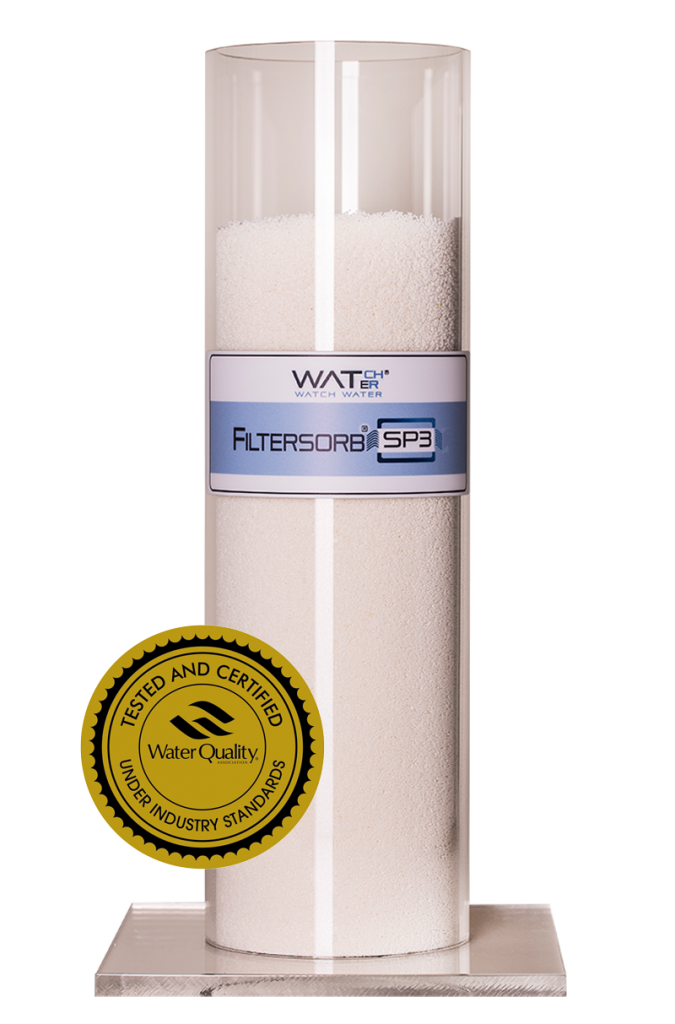
Traditional water softener which requires salt is slowly being reduced due to the increase of regulations for brine waste waster which imposes ecological problems and constant maintenance cost. Simple scale prevention technology with Filtersorb-SP3 adds no salt or chemical and is 100% Environmentally friendly technology! On top of eco-friendly technology, Filtersorb-SP3 is certified by Water Quality Association (WQA) to NSF/ANSI/CAN 61 Drinking water standards & NSF/ANSI 372 – Lead-free materials.
 Drinking Water Treatment
Drinking Water Treatment